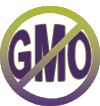French Court Upholds Ban on Gene-Altered Corn Seed
By James Kanter
New York Times
March 19, 2008
PARIS - Opponents of gene-altered crops won a victory in France on Wednesday when the top court upheld, at least for the time being, a ban on a corn variety produced by the American seed company Monsanto.
Growers had argued that the economic harm they faced was serious enough for the month-old ban to be lifted immediately, before the start of the spring planting season. Proponents also said that allowing plantings of the gene-altered seed, called MON810, could benefit consumers at a time of rising food prices.
But the Conseil d'État upheld the ban until it could rule on its scientific underpinning. Hearings are expected to be held in coming months.
In his ruling, Judge Jean-Marie Delarue pointed out that a report issued in January by a committee of French specialists had called for more studies on the product's safety.
French officials were correct to have paid attention to "new elements brought to light by the committee that could be seen as posing a grave risk to the environment," Judge Delarue wrote.
The decision was a victory for environmentalists and for farmers opposed to gene-modification technology. They had warned that the corn, which confers resistance to pests, could pollute other crops and pose a threat to the environment and human health.
Other farmers, backed by the biotechnology industry, argue the products could help lower costs and reduce use of pesticides.
"We are disappointed," said Stéphanie Piécourt, a spokeswoman for Monsanto in France. Corn growers "will not be able to benefit from the economic, agricultural and environmental advantages that this product offers."
In January, President Nicolas Sarkozy recommended banning MON810, choosing to err on the side of caution.
The French agriculture ministry imposed the ban on Feb. 7, saying it should remain in place until a review of the product - required every 10 years - was completed by European authorities.
Efforts to overturn the ban were led by the General Association of Maize Growers in France and several biotechnology companies, including Monsanto and Pioneer, a unit of the chemical company DuPont.
Cédric Poeydomenge, a spokesman for the maize growers' association, said farmers had hoped to plant 100,000 hectares (247,105 acres) using the pest-resistant corn.
He said farmers would plant nonmodified corn this year, but would face 10 million euros in insecticide costs and potential losses from pests.
Mr. Poeydomenge said that only about 22,000 hectares (54,363 acres) were planted with MON810 last year although the seed variety was appropriate for use on 700,000 hectares of France that are in regions heavily affected by pests.
France plants about three million hectares of corn for food use and for feeding cattle, he said.
Battles over gene-altered crops have been fought across Europe for more than a decade, but there now are signs that some governments and policy makers are prepared to ease long-standing opposition.
Nathalie Moll of Europabio, an industry association in Brussels, said she expected MON810 to be cultivated this year in at least seven European Union countries, including Spain and Germany. MON810, under the brand name YieldGard, has been used in the United States for more than a decade.
Officials at the European Commission have deemed many genetically modified products safe and want to introduce more to normalize trade relations with countries like the United States and to lower costs for farmers.
But some governments, including those in Austria and France, are extremely wary of softening their stance on genetic modification because continuing distrust among those citizens who consider gene-altered products to be "Frankenstein" foods.

